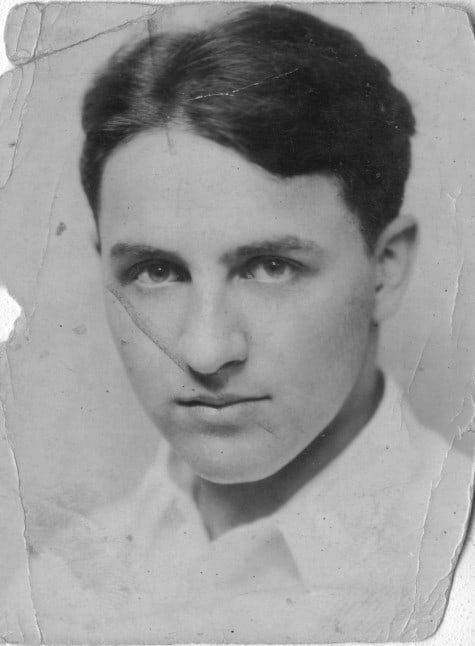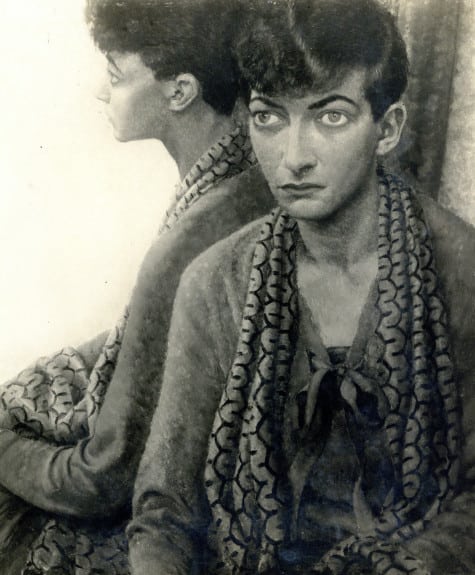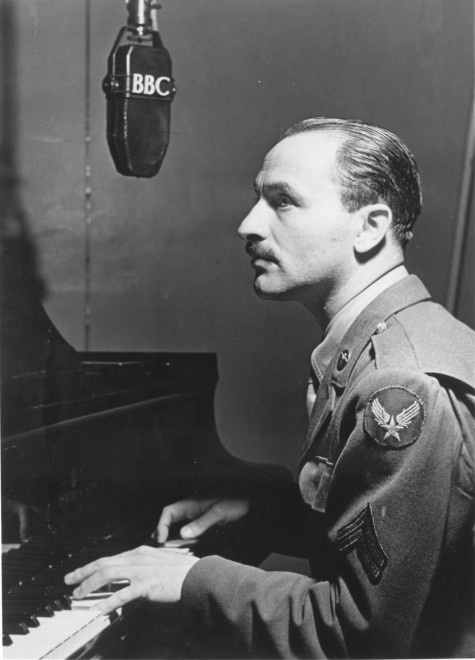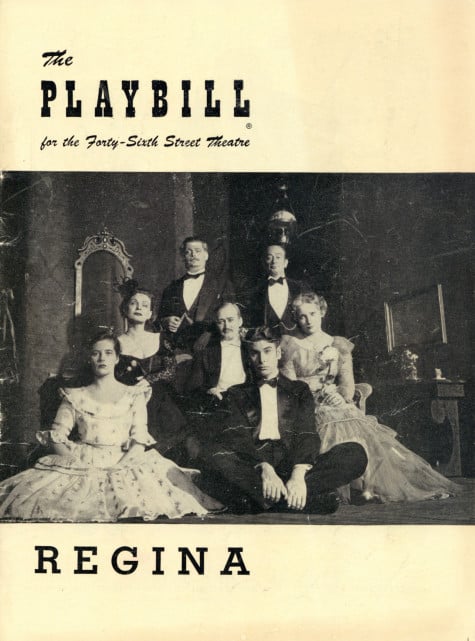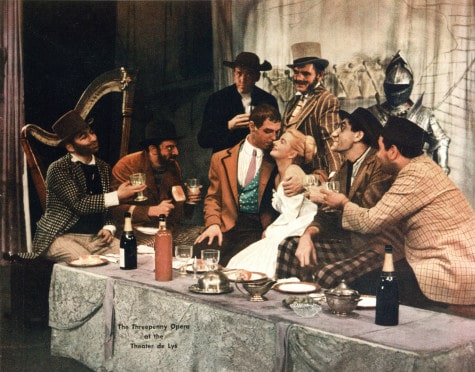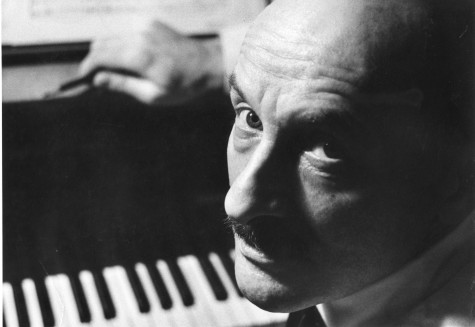Timeline
March 2, 1905
Marcus Samuel Blitzstein born in Philadelphia.
1923-1926
Piano studies with Alexander Siloti; composition studies with Rosario Scalero at Curtis Institute of Music.
1926
Performs Liszt's Piano Concerto no. 1 with Philadelphia Orchestra.
1927
Brief composition studies with Nadia Boulanger in Paris and Arnold Schoenberg in Berlin.
Late 1920s
Compositions: Settings of Walt Whitman; solo piano music.
1929-1933
Extensive travels in Europe, including a tour of Germany with Aaron Copland.
Compositions: Cain (ballet), string quartets, The Condemned (choral opera).
1930
Triple Sec (one-act opera), libretto by Ronald Jeans, plays on Broadway as part of Garrick Gaieties
1933
1935
Meets Bertolt Brecht, who suggests that Blitzstein compose an opera on the theme of prostitution as an allegory on the condition of laborers under capitalism.
1936
Eva Goldbeck dies.
Blitzstein writes music, lyrics, and book for The Cradle Will Rock during the summer, drawing on Brecht’s suggestion and on Kurt Weill’s ideas about musical theater articulated during rehearsals for Weill’s Johnny Johnson.
1937
The Cradle Will Rock scheduled for production by the Federal Theatre Project, directed Orson Welles and produced by John Houseman. The production is cancelled at the last minute, whereupon the cast and creative team rent a theater uptown and put on the show with Blitzstein at the piano and actors scattered throughout the audience to circumvent union restrictions. It is a surprise success, serving as a springboard for a Broadway opening in December. Musicraft issues a cast recording.
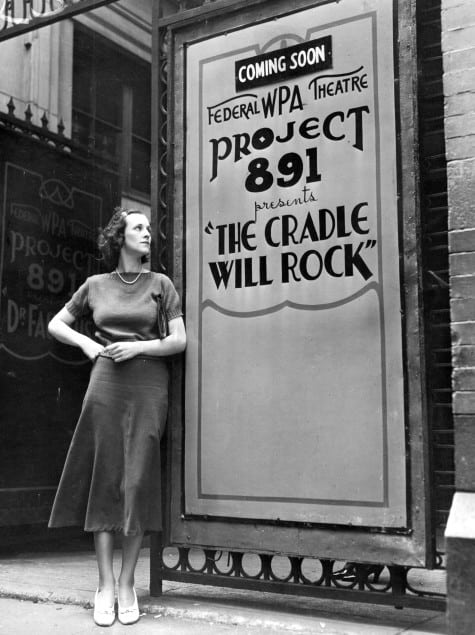
1937-1941
Compositions: I've Got the Tune (one-act radio opera), film scores, No for an Answer (opera).
1939
Meets Leonard Bernstein and forms a lifelong friendship.
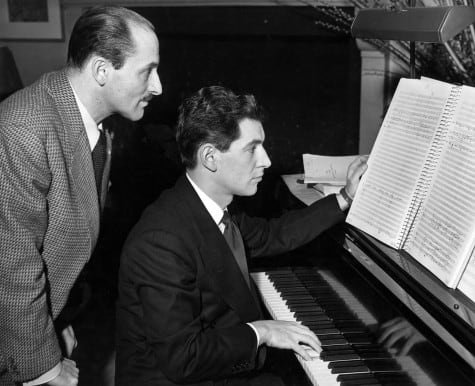
1941
Premiere of No for an Answer in New York. Despite a cast recording, the work does not have a theatrical run.
1942
1943-1946
Compositions: The Airborne Symphony, Freedom Morning.
1946
Blitzstein receives an honorable discharge from the Army. Premiere of the Airborne Symphony in New York with Bernstein conducting; RCA issues a recording.
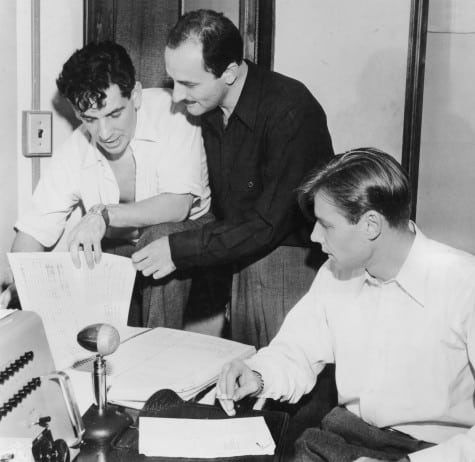
1946-1949
Composition: Regina, an opera for Broadway based on Lillian Hellman's play The Little Foxes.
1947
Broadway revival of Cradle Will Rock, the first performance with orchestra.
1949
Premiere of Regina on Broadway. 56 performances.
1950-1955
Compositions: Reuben Reuben; translation and adaptation of The Threepenny Opera
1952
Concert premiere of The Threepenny Opera at Brandeis University with Leonard Bernstein conducting and Lotte Lenya in the cast.
1954
Off-Broadway premiere of The Threepenny Opera, which closes and reopens in 1955, going on to break records for the run of a musical with 2,611 consecutive performances.
1955
Premiere of Reuben Reuben in a Broadway tryout in Boston. The show closes out of town.
1956-1959
Compositions: Juno, This Is the Garden (cantata), incidental music for Shakespeare plays
1958
Premiere of King Lear: A Study by the New York Philharmonic, Dimitri Mitropoulos, conductor.
1959
Juno (music and lyrics by Blitzstein, book by Joseph Stein) opens on Broadway. 16 performances.
Columbia issues a cast recording.
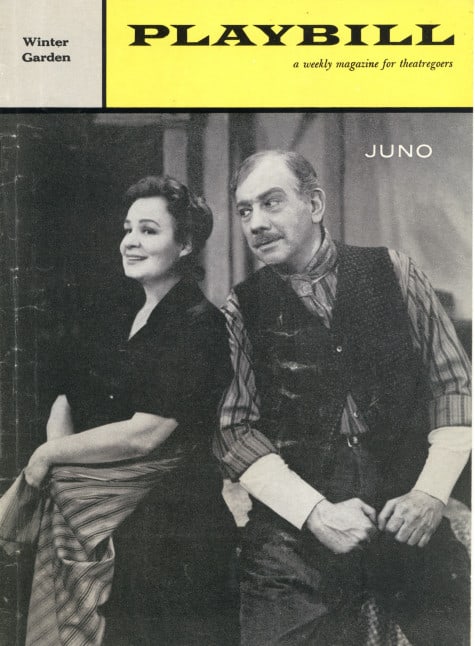
1960
Accepts commission from the Ford Foundation to compose an opera for the Metropolitan Opera. Blitzstein chooses the trial of Sacco and Vanzetti for the subject.
1960-1964
January 22, 1964
Dies in Martinique.

